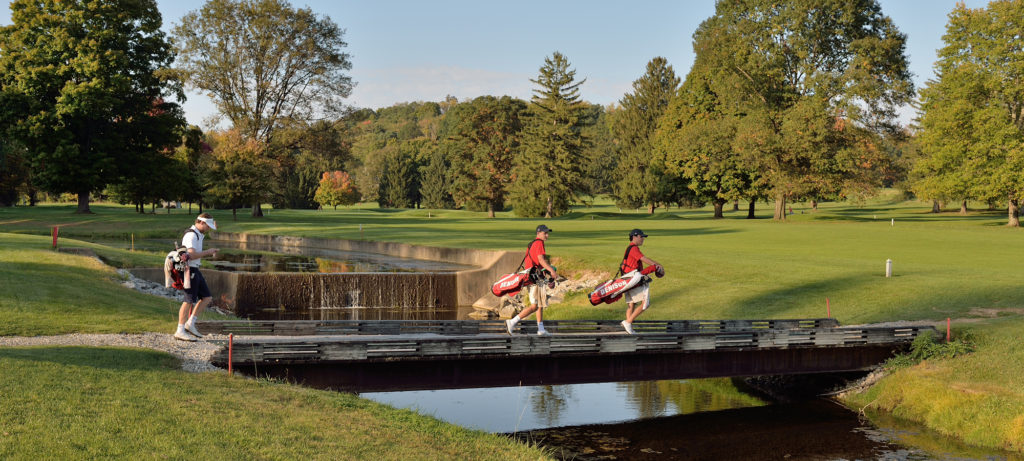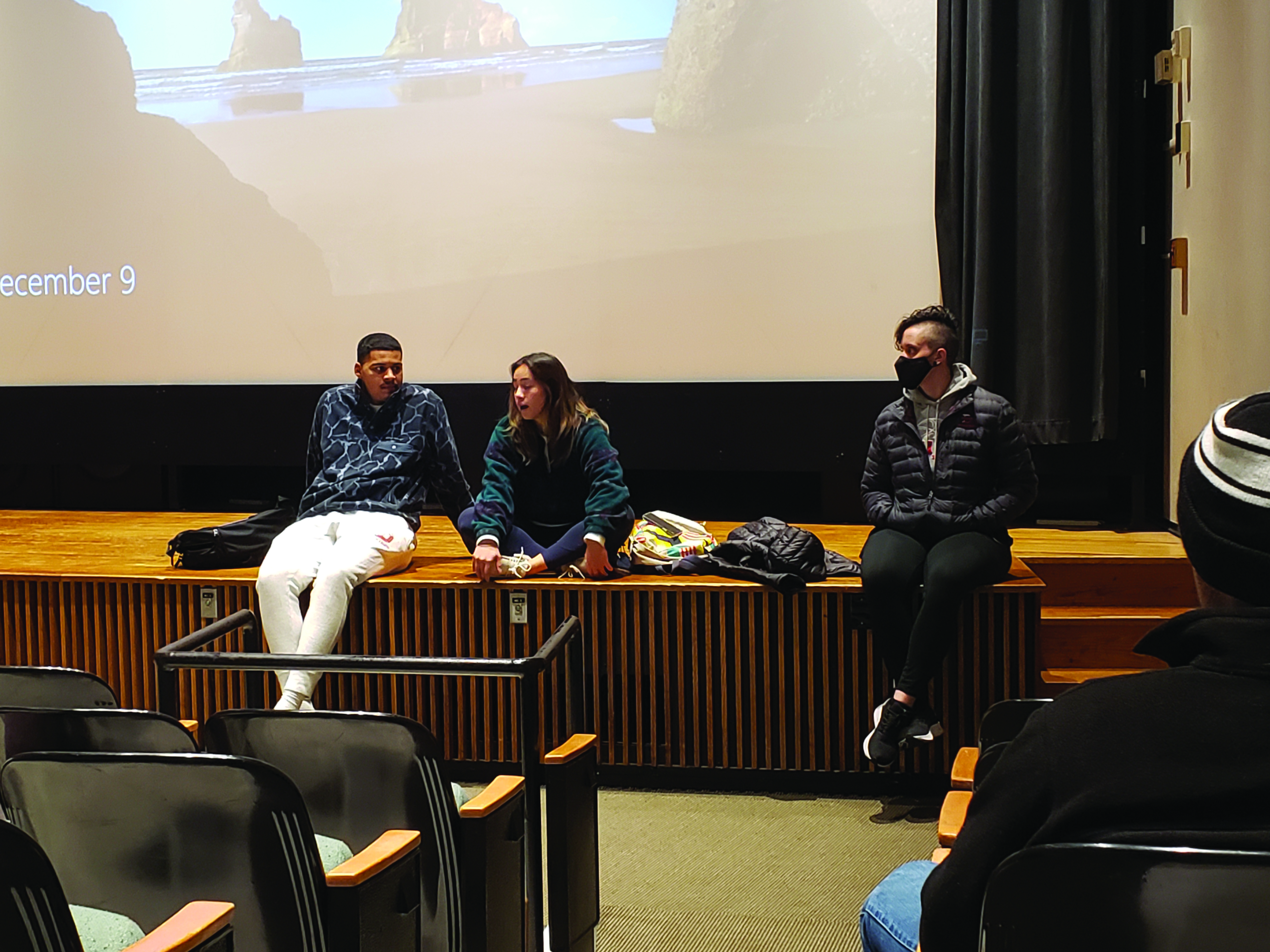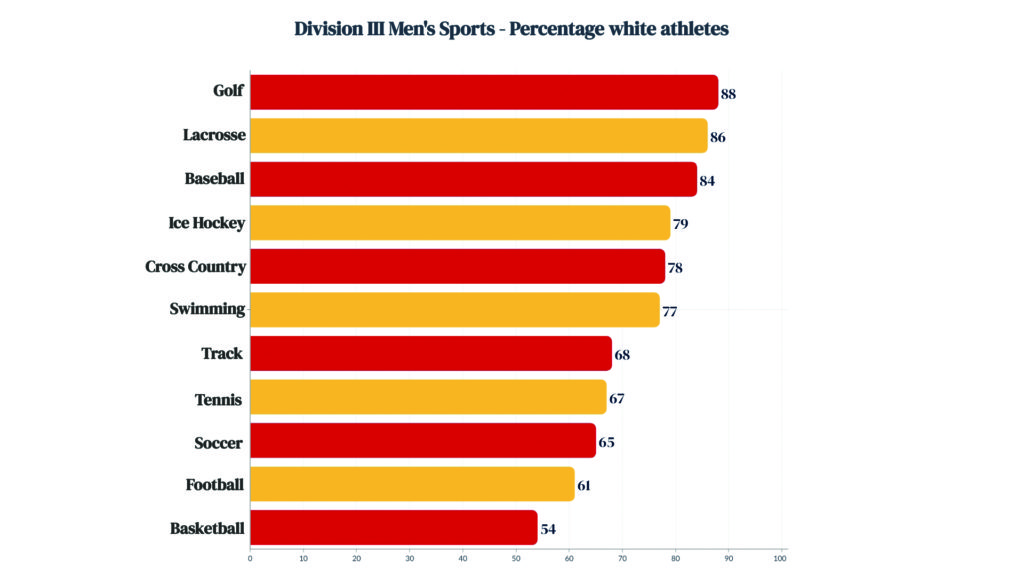
AARON SKUBBY, Editor-in-Chief—
The first part of this story was published in the 12/8 edition of The Denisonian
While diversity, equity, and inclusion may be a priority of staff within the Athletic department, the antiracist work being done can make or break the Denison experience for many of the over 600 student athletes on campus. For some student athletes, pursuing antiracism has been central to their experience as leaders throughout their Denison career.
Within athletics at Denison, the Diversity and Inclusion Athletic Advisory Group (DIG) is an integral part of empowering students to try and make change both inside and outside of the Mitchell Center. Since COVID-19 shut down the Denison campus in Spring 2020, Maya Tumiwa ‘22 and Freeman Brou ‘22 have served as the president and vice president of DIG. Now, they are looking to pass on their legacy to new hands. Both Tumiwa and Brou are communication and economics double majors. Tumiwa grew up in Manila, Philippines and went to middle and high school in Alexandria, Virginia. Brou is from Lawrence, Kansas.

Tumiwa first became involved with DIG during her freshman year, when a teammate asked her to get involved. “At the time, I didn’t think anything of it. Okay, cool, there’s diversity in the name and I’m half asian,” Tumiwa said. Shortly after they began, Tumiwa and Brou recognized the need for DIG to become a more action-oriented group.
“We didn’t really have a lot of transition into what this position meant,” Tumiwa said, “and that summer was the Black Lives Matter movement, and Freeman and I were kind of put in the position where we realized we needed to change the way that this group was run because a lot of the time before it was just talking and nothing was coming out of it.”
Brou highlighted what they saw as the need for DIG to become “proactive rather than reactive.”
“We wanted to expand it and do things within the Denison community that not only gets our name out there, but also is proactive in the sense that I’m already thinking about how I can be more inclusive and how I can promote diversity on campus.”
As explained in the previous edition, Denison athletics is falling behind the general student body in terms of diversity. Nationally, some sports struggle much more than others. Across all of Division III, Men’s Golf is the least diverse, with 88% white athletes. Senior golfer Marc Mitchell explained why he thinks golf is inaccessible to many people, and what he thinks can be done to help make the sport more equitable.
“Accessibility is the main barrier, golf courses simply are not in the same quantity as say a soccer field or a basketball court. Additionally, they are not spread out geographically equally; many times they can be centered in one region which makes it very hard to get to for a lot of people,” he said. “Second is the cost- the equipment itself is quite expensive; playing a golf course can be $30-$80+ for each time you play, and practicing costs a separate, additional amount of money. The barrier to entry is unfortunately pretty high.”
Despite these challenges, the golf team has been attempting to help break down these barriers in the local community. “This year, Denison Golf began volunteering with the First Tee of Central Ohio which is located in Columbus. First Tee is a fantastic non-profit that works to lessen these barriers to entry by providing a location to play, and in most locations, providing most equipment (clubs, balls, etc.) as well as the tools to grow knowledge in the game and to grow as a person as well,” Mitchell said.
Mitchell recognizes the challenge facing individual teams, but also the need for a cultural shift in the game as a whole. “I think there is room to grow at the collegiate level. It first starts at young ages where people of all backgrounds have accessibility to the game, which is why the work First Tee does is so incredibly important. The game of golf itself is where the change begins, stepping away from the ‘country club’ atmosphere and stepping into a more approachable game,” he said.
With Maya and Freeman as leaders, DIG has emphasized what students can do to foster inclusion across identity at Denison. “Diversity and inclusion aren’t one and the same, and they need to be treated as different entities. We can’t change the diversity on campus but we can do our best to change the inclusion,” Freeman said.
One key challenge for athletics is “to authentically show and praise people of color without making them a token for their team,” Freeman explained.
“The fact that there is that space has allowed some of us to challenge others’ thinking. For example, last year it was just me and this other girl who were international, and it felt like we were the ones constantly bringing international news or topics to the table. Sometimes it was discouraging when nobody knew what we were talking about,” Maya said.
“In a positive light, it helps us challenge each other to think differently.” she said. “I think there’s definitely people who have taken in those conversations and started their own self growth in being more open minded.”
In late October, DIG hosted a Halloween Bonfire in collaboration with the Black Student Union, the Denison Asian Student Union, La Fuerza Latina, Hillel, and the Denison International Student Association. “It was a small thing, but it did start conversations and relationships that I don’t think otherwise would happen if it weren’t for different groups being in collaboration,” Freeman said. “We all stay in our little corners of campus, and how is that making anything more inclusive if nobody is talking to each other?” Maya added.
Maya and Freeman left with some advice to future students who are passionate about building antiracist culture.
“It’s the inclusivity part that’s going to be challenging for people, Maya said.” For a lot of BIPOC people, they are constantly being challenged and for those who are white and aren’t feeling those challenges, it’s easy to feel comfortable in the space they are in and not go to other groups”
“For the everyday student it’s don’t get comfortable with it just being okay,” Freeman said. “Have the conversations and do the proactive stuff, but be action-oriented in making change.” Maya added that “the challenge is holding yourself accountable and putting yourself in an uncomfortable space that you’re not used to. For DIG, it’s continuing this action-oriented model.”
“There’s always so much more you can be doing,” she said.


